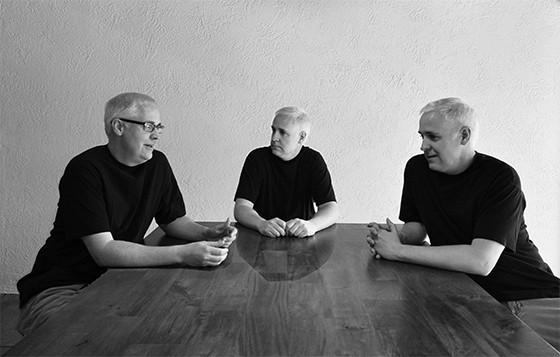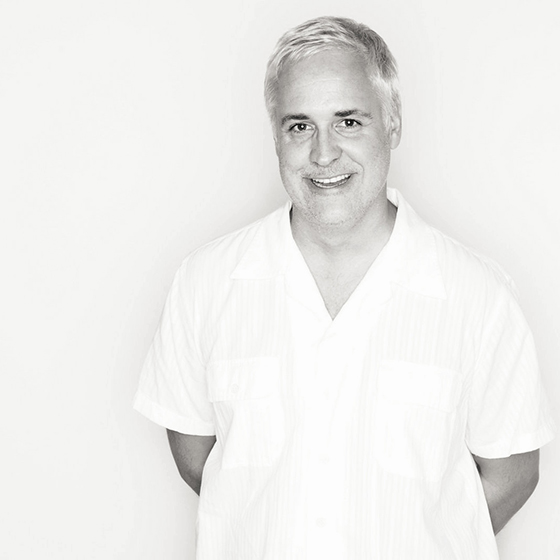I recently took the position of Chair of the Digital Communications Committee with the Texas Society of Architects, the state level entity of the American Institute of Architects. I am leading a committee made up of 11 other dynamic architecture type people and it is the charge of our committee to evaluate and develop some of the content that goes on to the TSA website.
There are a bunch of ideas that I’ve had for posts on my own site that for one reason or another weren’t going to work. I still think they would make for interesting reading so I am trying to bring them to the TSA website. One of the things that I wanted to change about that site is to give a voice to the individual – focus on the people who are architects. One of the ways I think we can bring attention to the individual is to have a weekly series titled ‘Architects talking to Architects.’
.

The premise for this weekly series is very simple: identify individuals at various stages of their architectural careers (students, interns, young licensed architects and seasoned architects) and ask them to respond to the same list of questions. Part of the reason I think this would be an interesting series is that it would focus on the traits or characteristics that most architects seem to share with one another, as well as celebrate our differences as individuals.
Every person on the TSA Digital Communications Committee has come up with a list of ten potential questions and we are currently in the process of evaluating which ten would make for the most interesting to have our interviewees answer. To give you an idea of how these articles might exist, I thought I would act as the test case. I would really like to hear (read) your input if you can afford me the time and the effort.
.


When did you know you wanted to be an architect?
This is an easy question for me to answer because I have always wanted to be an Architect – even before I knew that the word “architect” even existed. The key word in that previous sentence is “knew” because I am at a loss to explain how a 5-year-old would know such a thing. I can also tell you that the moment this decision was clarified in my mind was on Christmas day, 1973, when I was 5 years old. That year I received from Santa Claus; a T-square, an orange 45 degree triangle, and a laptop drafting board
Where did you go to college? Is there anything about the architectural education experience that you have fond memories of?
I graduated rom the University of Texas in Austin in 1992 with a Bachelor’s degree in Architecture. It was a 5 year degree even though I took 6 years to complete it. Part of the reason it took me some extra time is that I participated in a travel abroad program and it changed how I viewed the world. Ever since that experience, I have endeavored to travel more extensively as well as expose my own child to other cultures and people.
How do you spend your time at the office?
I am the third man on the totem pole that has eight people on it – which means I am the living embodiment of “middle management.” I spend most of my time on the front and back ends of projects – the parts that deal with other people outside the office … Design and Construction Administration. I get to work typically around 7:15 each morning and leave at 5:00 to pick my daughter up from school. Most of the time in between is spent on the phone or writing emails.
Where do you turn for inspiration? How do you find it?
Simply looking at the everyday items from my environment is a good start when it comes to finding inspiration. Seeing something that you like, and then taking the time to understand why you like it, is a very rewarding process that frequently affects the way you ultimately see a thing. Other than that, I am deluged with design magazines and trade periodicals daily and while the information is sometimes outdated by the time I see it, the process of critically looking at what other designers are doing is very inspirational.
How do you spend your time when you aren’t working? Are you always an architect?
I have mentioned to several of my friends that I don’t think architects have hobbies – most of what they do in their off time are either an extension of their job or simply the development of a skill set that benefits their ability of an architect. That having been said, I do like to cook barbecue. Every summer I spend a ridiculous amount of time in the backyard standing around my smoker trying to the right color of blue smoke. It’s the sort of hobby that benefits my close friends. I am about to try my hand and crafting my own beer – should be interesting.
Do you have a favorite City?
It has to be Paris. I have been several times myself and a few years ago, I took my wife and then 5-year-old daughter there on vacation. I really like the speed at which the city moves, but it’s also easy to love the food, the museums and the architecture. What made this last trip so great – something that I hadn’t ever taken the time to appreciate before – was the number of outstanding parks and green spaces there were to enjoy. Our hotel was across the street from the Tuileries Garden and we spent many evenings walking the grounds while my daughter chased the birds.
Do you have a favorite building?
It is almost impossible for an architect to tell you what their favourite building might be and I’m no different. I can tell you that one of my current favourites is the Galeries de Paléontologie et d’Anatomie Comparée (Gallery of Paleontology and Comparative Anatomy), part of the French Muséum national d’histoire naturelle (Natural Museum of Natural History) located within the Jardin des Plantes in Paris. The building is done in an architectural style called ‘Naturalism’, sort of generic term for Art Nouveau, Organic Architecture, and Expressionism. The building has seen better days but it doesn’t take an architect to appreciate some truly magnificent spaces and forms.
If you weren’t an architect, what do you think you would be doing?
I used to think that my backup plan was to become a chef. I think a lot of architects had this as a possible career trajectory, something that I find particularly interesting. If I could have been a chef who never had to wash dishes, this backup plan might have been my primary plan.
Do you have a particular sort or brand pen that you prefer over all others?
I used to be a sharpie man all the way but recently I started using the Flair felt tip pen from Papermate. I don’t like using ballpoint pens – it’s literally as if I’ve never written before if I try to use one. I have a few fountain tip pens but since I am left-handed, dragging my hand through fresh wet ink hasn’t worked out too well.
Do you still sketch? Do you think it’s a valuable skill in today’s marketplace considering the proliferation of digital renderings?
I do sketch even though I sketch as part of a problem solving process rather than time and place drawings. Maybe it’s because I came out of college at a time when nobody was using computers but I still think there is something about the speed at which a sketch comes to life that requires a bit more patience. As a result of this reduced pace, I think I rely on a little more 3-dimensional thinking inside my head and I believe this has helped develop my ability to think spatially.
.
Bob Borson is an architect practising in Dallas, Texas, and writes a blog on what it’s like to be and work with an architect. To find out more, visit Life of an Architect, catch up with Bob on Facebook, or follow Bob on twitter @bobborson
.
So there it is – a sample of what these weekly architect profiles might look like – of course we haven’t settled on the questions yet. Maybe there should be fewer questions, maybe the questions should have some facet to them that might highlight the nuances between the different levels of experience between the architects who respond. At any rate, I think this is a weekly series that would be of some value to all architects and soon to be architects. There is something to be said for finding out that we are not that dissimilar yet we are all still individuals.
I, for one, am very excited about the possibilities. I would really like to hear your thoughts on the idea and thank you in advance for sharing them with me.
.
.
